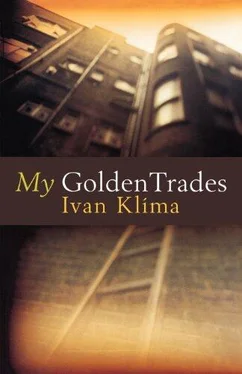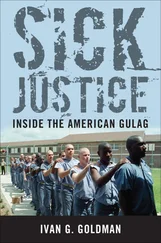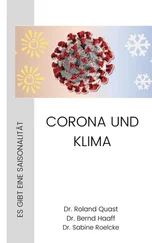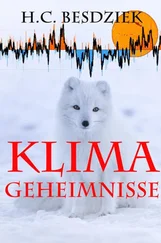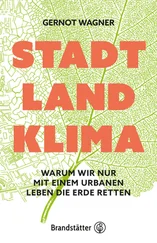Ivan Klima - My Golden Trades
Здесь есть возможность читать онлайн «Ivan Klima - My Golden Trades» весь текст электронной книги совершенно бесплатно (целиком полную версию без сокращений). В некоторых случаях можно слушать аудио, скачать через торрент в формате fb2 и присутствует краткое содержание. Год выпуска: 1998, Издательство: Granta UK, Жанр: Современная проза, на английском языке. Описание произведения, (предисловие) а так же отзывы посетителей доступны на портале библиотеки ЛибКат.
- Название:My Golden Trades
- Автор:
- Издательство:Granta UK
- Жанр:
- Год:1998
- ISBN:нет данных
- Рейтинг книги:4 / 5. Голосов: 1
-
Избранное:Добавить в избранное
- Отзывы:
-
Ваша оценка:
- 80
- 1
- 2
- 3
- 4
- 5
My Golden Trades: краткое содержание, описание и аннотация
Предлагаем к чтению аннотацию, описание, краткое содержание или предисловие (зависит от того, что написал сам автор книги «My Golden Trades»). Если вы не нашли необходимую информацию о книге — напишите в комментариях, мы постараемся отыскать её.
My Golden Trades — читать онлайн бесплатно полную книгу (весь текст) целиком
Ниже представлен текст книги, разбитый по страницам. Система сохранения места последней прочитанной страницы, позволяет с удобством читать онлайн бесплатно книгу «My Golden Trades», без необходимости каждый раз заново искать на чём Вы остановились. Поставьте закладку, и сможете в любой момент перейти на страницу, на которой закончили чтение.
Интервал:
Закладка:
The village with the cement plant did not lie within the area we were surveying. We had, however, often been in cemeteries simply because they were usually next to churches where our benchmarks were.
The surveyor had to call on the priests or the vergers in their crumbling houses, to determine whether anything had been shifted or altered, particularly on the steeple or the dome, since the last survey. Sometimes I would see them in the doorway, old men with white collars, shaking their heads, confirming that no, the church had not been repaired. Sometimes they would invite him inside to complain about just that, that their church was deteriorating.
Meanwhile I would go to the cemetery, which was always open. Immediately I walked through the gate, I found myself in a different world. The graves seemed to be competing to see which could display the greatest variety and number of flowers, and if they were covered with grass, the green was not marred by a single weed. Something of the old values, customs and usages that have been forgotten everywhere else had survived here. Even in the most thinly populated villages, there would almost always be someone with a shovel or a rake or a watering can, tending a grave. And if they were not working, then they would stand in contemplation, or in silent prayer.
Just beyond the wall of one cemetery, there were two stone pillars and we worked on them until dusk. A cluster of children watched us from a distance. The moon came out over the low village roofs and when it appeared, so did the local priest. He had come to ask us if we'd like some refreshment.
He brought us out some coffee, and as we drank it he told us the story of an old farmer who had hidden in the mortuary in the 1950s. His friends had warned him that 'they' were coming to arrest him. The mortuary was locked, having been disused for years. People died in hospitals, after all, or they laid them out at home until the funeral. Only the sexton and the priest had the keys, and they brought the farmer food. The voluntary prisoner was given the third key so that he could leave this house of the dead whenever he had to. Fortunately, the lock worked both from inside and outside, although given the original purpose of the place, that should have been unnecessary. The cemetery was a good place to hide since, as we must have noticed, it was surrounded by a high wall and could only be seen from the steeple. It had its own water supply, and a compost heap in the corner right behind the mortuary.
The man lived there for almost a year. At night, when the moon was out, he did a little of the maintenance work in the churchyard. What did he do during the day? Perhaps he read, and apparently he also wrote something about his own life, but nothing of that survived. Then winter set in and things became more difficult. It was cold inside the mortuary, and outside there was snow, so the farmer left tracks when he went out. Both the priest and the sexton tried to persuade him to hide in their homes, but he
hesitated, perhaps because he didn't want to put them in any danger. In those days everything was treated as high treason or subversion and sabotage. One morning they found him dead inside the mortuary. He was given a quick, but Christian, burial, and they decided to destroy everything he left behind. It was too bad about the notebooks. In such isolation, a person may catch a glimpse of things we are not even aware of.
As I walked among the graves, it occurred to me that our obsession with measuring, counting, drawing and inventing comes not just from trying to expel mystery from the world, but also from the need to hold life itself at a distance, since otherwise it would terrify us by its brevity and its transience. In a digitalized world, not only does life vanish, death disappears as well. What remains, at the most, are citizens, populations, property and land registries.
One day, at another cemetery, I saw, bent over a grave, an oddly familiar angular head with prominent ears. For a moment I couldn't remember where I'd seen that head before, until the old man looked around and asked, 'Looking for someone's grave, comrade?' The word 'comrade' took me back to the corridor in the château that first day of my career as a surveyor's assistant. I answered as I had then: 'No, I'm not.'
'I have to come here once in a while,' he told me, as though apologizing, 'to look after my late wife's grave, to keep it from going to seed.'
The grave looked more neglected than the rest. The date on the stone indicated that his wife had passed away five years before. The grave had no cross and there were no flowers around it, only some desiccated heather.
'No one's even bothered to lay so much as a dry stick at
her grave,' he complained, 'and it's so close. And when she was alive they all greeted her, and whenever they needed something they came to her, even in the night.'
'Was your wife in the health service?' I asked, guessing.
'My wife made it further in life than I did. She was working for the district office,' he said proudly. 'And back in 1970, when we had to purge the party and society of anti-socialist elements, she was chairman of the screening committee — higher than me again.'
I understood that I was standing face to face with the older brother of K., the director, the addressee of my letters.
'Why, she could still be with us,' the old man complained. 'She wasn't yet sixty.' His voice quavered. He pulled a large wallet from his breast pocket and fished around in it for something. As he did so, several photographs spilled out to the ground. I bent down to pick them up. I'd have done the same for K., the director, if he were so despondent, so surrounded by emptiness. In one of the photographs I saw a young man with an obviously angular head, in another a girl with thick long hair. I handed back the photographs and he quickly stuck them into his pocket. 'There she is,' he said, having found the snapshot he was looking for. 'Who would have thought it?'
The face of the older sister of that family of which Mr K., the director, was also a member, revealed nothing. The thin, tight, unsmiling lips perhaps spoke of rigidity or intolerance.
'And now I'm in the home,' he sobbed suddenly. And do you think anyone will talk to me there? I hear them talking to each other, but whenever I approach them, they stand up as though they were just going.'
'Were these your children in the snapshots?'
'Don't talk to me about them! I feel closer to children who aren't my own. The girl stayed in Austria, and I arranged for her to go on that trip myself. She didn't even come back for her mother's funeral. What did she want that she couldn't have had here? And I don't talk to the boy either. You know what he did?' He waved his hands as though trying to drive away a terrible vision. 'He joined up with the Adventists. He even tried to convert me. "Dad," he says, "the end of the world is coming. Repent while there's still time." So I said to him: "Repent yourself. I haven't betrayed my ideals, I don't need to repent!" And I told him not to even bother writing to me. Life, comrade, has taught me how to be tough.' And the cheeks of this wretched man burned with flames of rage.
The surveyor came through the gate, walking beside a priest. The man saw them as well, and suddenly became alert and guarded: 'Who are you anyway? What are you doing here?'
'We're surveying.'
'Surveying? What?'
The earth.'
'Have you got a permit?'
For surveying, yes, but for simply walking upon the earth, we don't have the proper stamp. I walked away.
It is possible that this anxious stewardship of the cemeteries that sets them aside from the decay and neglect around them can be explained by something more than simple respect for past values. We avoid thinking about death, but death is all around us and impinges on us everywhere except here. In the cemetery lies lose their meaning, and without lies all the artificial world falls away.
Читать дальшеИнтервал:
Закладка:
Похожие книги на «My Golden Trades»
Представляем Вашему вниманию похожие книги на «My Golden Trades» списком для выбора. Мы отобрали схожую по названию и смыслу литературу в надежде предоставить читателям больше вариантов отыскать новые, интересные, ещё непрочитанные произведения.
Обсуждение, отзывы о книге «My Golden Trades» и просто собственные мнения читателей. Оставьте ваши комментарии, напишите, что Вы думаете о произведении, его смысле или главных героях. Укажите что конкретно понравилось, а что нет, и почему Вы так считаете.
